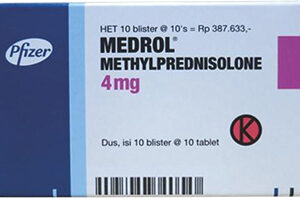Accutane Usage Guide
Accutane, whose generic name is isotretinoin, is a potent medication primarily prescribed for the treatment of severe acne, particularly nodular acne that has not responded to other treatments. It functions by lessening oil production in the skin, aiding in the rapid renewal of the skin cells. The drug belongs to a class of pharmaceuticals known as retinoids, which are related to vitamin A.
It is critical that Accutane is taken exactly as prescribed by a healthcare provider. The treatment regimen usually involves a course that spans several months, and improvements in skin condition are typically observed after completing the prescribed cycle. However, it’s important to note that during the initial days of therapy, a patient’s acne may appear to worsen before it begins to improve.
Accutane Dosage Norms
The recommended dosage of Accutane may vary depending on a patient’s weight, response to the drug, and the severity of the acne. Treatment generally begins with a low dose, with a gradual increase as necessary. The typical daily dosage ranges from 0.5 to 1.0 milligrams per kilogram of body weight, split into two doses per day. It’s imperative to ingest Accutane with food to enhance its absorption.
Precautions and Caveats
Before commencing treatment with Accutane, it’s essential to discuss one’s entire medical history with a healthcare provider. This includes any history of mental health issues, as isotretinoin has been linked to mood alterations. It is also necessary to inform the provider about any existing allergies to medications, particularly vitamin A-related drugs (retinoids).
Due to the potential of isotretinoin to cause severe birth defects, women who are pregnant or planning a pregnancy must not take Accutane. It is mandatory to employ effective forms of contraception while on Accutane and for at least one month after completing the treatment. Additionally, blood donation is prohibited during this period as the drug could potentially harm the unborn baby if the blood is given to a pregnant recipient.
Patients on Accutane therapy should steer clear of vitamin A supplements as this might heighten the risk of toxicity. Minimal exposure to sunlight or ultraviolet lamps is advisable since isotretinoin can make the skin more prone to sunburn.
Potential Adverse Effects
The influence of Accutane can lead to a host of side effects, with some individuals experiencing them to a greater degree than others. Commonly reported side effects include dryness affecting the lips, mouth, nose, or skin, itching, rash, and sensitivity to sunlight. Alterations in nail and hair consistency, as well as mild headaches, may also occur.
More serious side effects, while less common, can include severe headaches, blurred vision, nausea, vomiting, seizures, stroke, depression, and suicidal thoughts. If any of these serious side effects present, it is critical to contact a healthcare provider immediately. Regular follow-up appointments and laboratory tests will also be required to monitor for any adverse effects on the liver, cholesterol levels, and to ensure the absence of pregnancy.
Drug Interactions to Heed
Accutane can interact with various medications, potentially resulting in decreased effectiveness or increased risk for serious side effects. Particular attention should be given to tetracycline antibiotics, as this combination can elevate the likelihood of increased pressure in the brain. Additionally, caution is advised when it pairs with other acne medications, supplements containing vitamin A, or with “St. John’s Wort,” which could potentially interfere with the effectiveness of birth control medications. It’s imperative to provide healthcare providers with a comprehensive list of current medications, including prescription, over-the-counter drugs, and herbal supplements.
Notable Contraindications
Isotretinoin’s range of contraindications is significant. Aside from pregnant individuals, individuals with a history of hypersensitivity to any of its components should not engage in Accutane therapy. Patients with severe liver disease, high cholesterol, or triglycerides, and those with a history of mental illness require careful evaluation and monitoring throughout the treatment course.
Special Population Considerations
For each special population, unique considerations are in place for Accutane therapy. Pediatric patients, while they may be candidates for Accutane, need to be monitored for proper bone growth and development, as isotretinoin could potentially impact long-term bone health. The elderly population might be at a heightened risk for certain side effects and, therefore, require close supervision. Women of child-bearing potential bear the greatest considerations due to the teratogenic effects of the drug.
Storing and Disposal
Accutane should be stored at a controlled room temperature, away from moisture, heat, and out of reach of children. It should not be stored in a bathroom cabinet. To maintain efficacy and safety, ensure that the medication remains in its original packaging until it is time to take it.
Proper disposal of Accutane is vital to prevent accidental ingestion or potential harm to others. Unused or expired medication should not be thrown in the toilet or a drain unless specifically instructed by a healthcare professional. Many pharmacies participate in take-back programs or provide instructions for safe disposal. It’s advised to contact the local waste management authority for definitive guidelines should there be any uncertainty.
Throughout treatment and beyond, vigilance in following appropriate usage, dosage norms, recognizing potential adverse effects, and adhering to safety measures form the foundation of optimal therapeutic outcomes with Accutane. Collaboration with a healthcare provider is paramount to tailor treatment to individual needs and to monitor the treatment efficacy and safety throughout the course of therapy.

Reviews
There are no reviews yet.